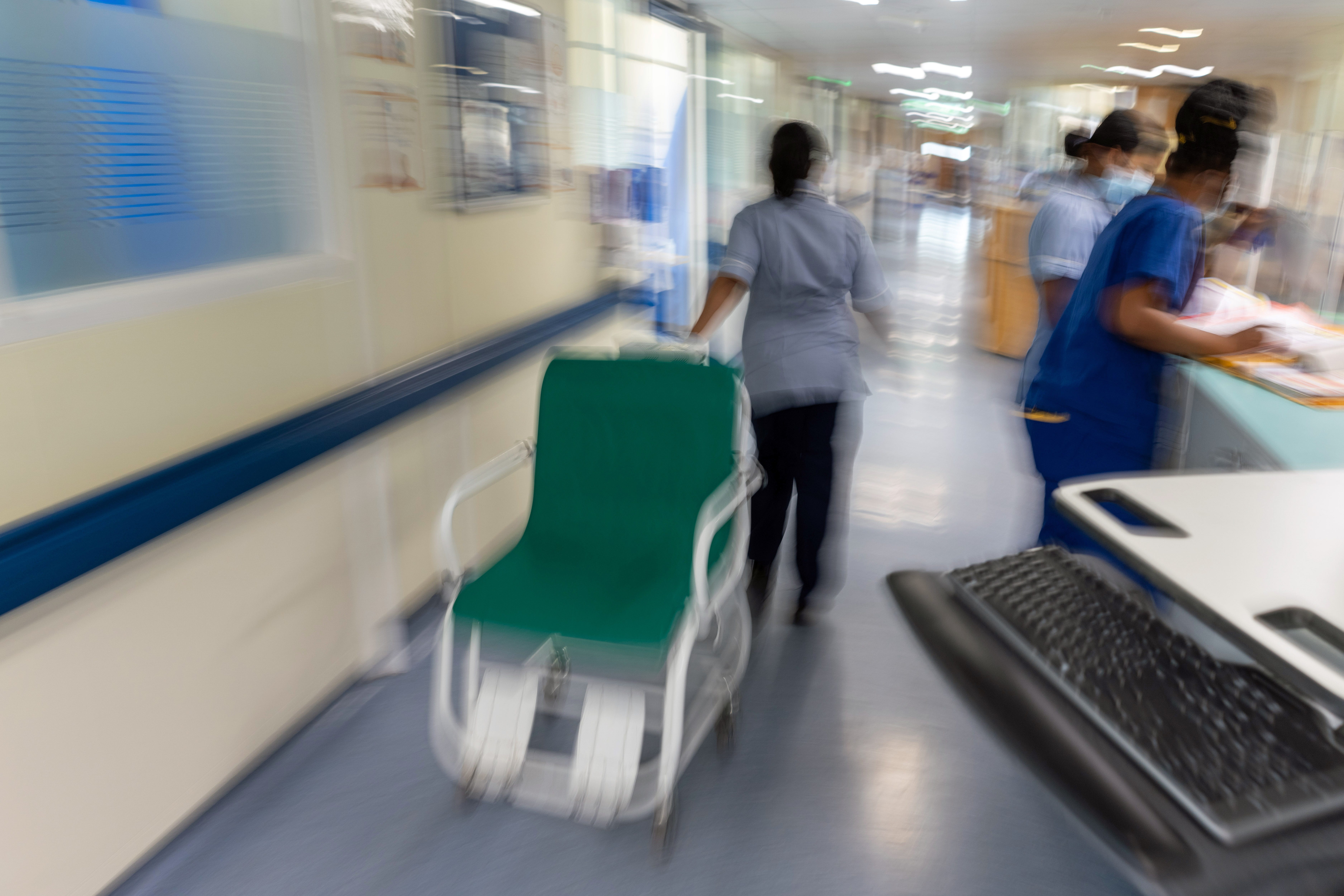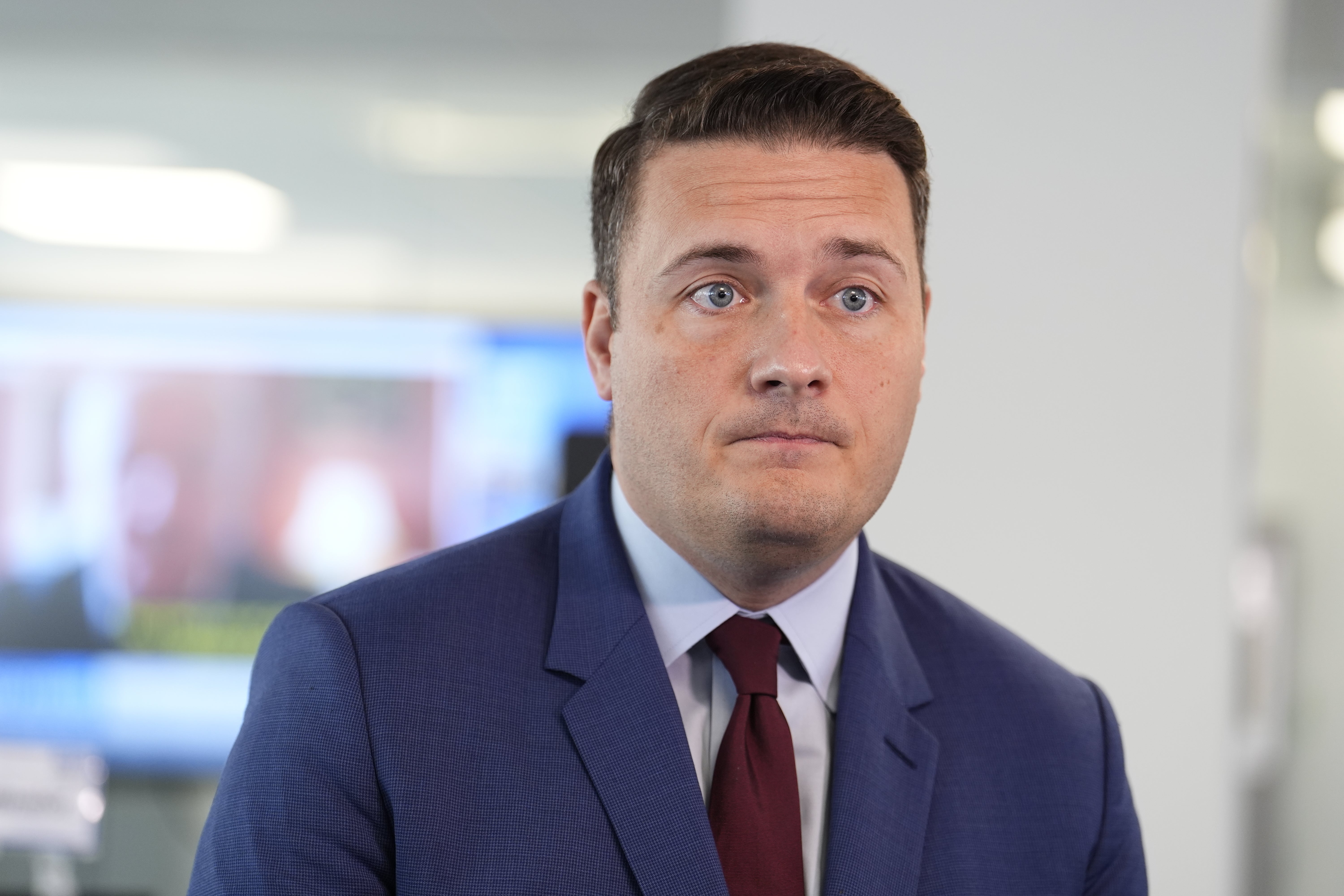NHS patients face months of winter strikes as nurses and GPs are the latest to threaten walkouts if their pay demands are not met.
The Royal College of Nursing (RCN) has warned its members feel “deeply undervalued”, and will be balloted on industrial action after 91 per cent of its members voted to reject the government’s pay offer of 3.6 per cent.
The union wants nursing salaries to be “raised at the bottom” and is calling for clearer career progression to prevent a staffing “crisis”.
It comes as GPs have also threatened to strike, warning minister Stephen Kinnock that the government must act on its list of demands to “avoid a future dispute”.
The fresh threats come after a five-day walkout by resident doctors ended on Wednesday, with thousands of staff taking action over the government’s refusal to meet their demands for a 29 per cent pay rise.
GPs, who are represented by the British Medical Association (BMA), will hold a meeting in September to decide whether to ballot for strike action over concerns about their part in the NHS’s much-heralded 10-year plan.

They want government assurances that GP practices will lead new “neighbourhood” hubs – which will bring tests, post-op care, nursing and mental health teams closer to people’s homes – and are demanding a timeline for investment in and the renewal of GP contracts.
The Department of Health and Social Care (DHSC) said the government “hugely” values the work of nurses, but stressed the profession has already had “two above-inflation pay rises”.
On Wednesday, health secretary Wes Streeting told BMA leaders he is willing to resume talks in their ongoing dispute over pay and working conditions, but warned: “It should be clear to the BMA by now that it will lose a war with this government. It’s not too late for us both to win the peace.”
Responding to news of the RCN’s ballot for action, business secretary Jonathan Reynolds said ministers had already put “substantial money” into pay rises.
“We know the workforce of the NHS had a difficult decade and a half,” he said. “We know how they feel. We have put substantial money into the NHS in the spending review, put substantial money into public sector pay.”
The RCN has warned that the profession faces widespread vacancies, stunted career progression and years of pay erosion, and urged ministers to use the summer to agree an investment plan or face a ballot on industrial action.
Announcing the results of its consultation on balloting for strike action, Professor Nicola Ranger, general secretary and chief executive of the RCN, said: “My profession feels deeply undervalued and that is why record numbers are telling the government to wake up, sense the urgency here, and do what’s right by them and by patients.
“Record numbers have delivered this verdict on a broken system that holds back nursing pay and careers and hampers the NHS. As a safety-critical profession, keeping hold of experienced nursing staff is fundamentally a safety issue and key to the government’s own vision for the NHS.
“Long-overdue reforms to nursing career progression and the NHS pay structure aren’t just about fairness and equity but are critical for patient safety.”

RCN executive director Patricia Marquis told BBC Radio 4’s World At One programme that nursing pay has fallen “further and further behind after years and years of below-inflation pay rises” and that the issue would not be solved with a simple percentage pay rise.
She said: “We need to see nursing salaries raised at the bottom and the career progression recognised for nurses across all of their experience ranges – so it’s not about the percentage pay rise, it’s about the crisis in nursing and the solutions that the government needs to come to the table to discuss to ensure that nursing is a profession that people want to join and that there are enough nurses to provide the care that the patients and the public need.”
Meanwhile, Unison, which represents ambulance staff and porters, is consulting members on possible action in response to the 3.6 per cent pay award.
On Wednesday, The Independent reported that vital cancer operations had been cancelled due to the resident doctors’ strikes. The full scale of the walkouts is yet to be revealed, with NHS England due to publish data on how many operations and appointments were shelved this week.
However, it is expected that fewer patients were affected compared to previous strikes after hospitals were ordered to press ahead with as much pre-planned care as possible. In previous walkouts, the majority of non-urgent care was postponed.
The latest threat of action from nurses comes after they led the way on strike action over pay in 2022 and 2023, which quickly saw other public sectors, such as train drivers and teachers, follow.
Following the doctors’ strike over pay, the BMA is now in dispute with the government over the number of resident doctors who are unable to get speciality training jobs. It claims that around 30,000 resident doctors have to compete for 10,000 specialist posts each year.
A DHSC spokesperson added in response to the RCN: “This government is clear we can’t move any further on headline pay but will work with the RCN to improve their major concerns, including pay structure reform, concerns on career progression and wider working conditions.”
Nurses threaten industrial action ballot after pay offer rejected
Healthcare equipment supplier on brink of collapse
Doctors should earn more than train drivers, says boss of train drivers’ union
Striking doctors will lose if they go to war with Government, Streeting warns
Hulk Hogan died from a heart attack. That’s becoming increasingly rare
US considering China travel warning after nearly 5,000 cases of deadly virus: report







